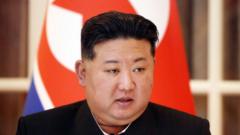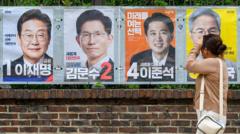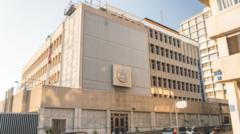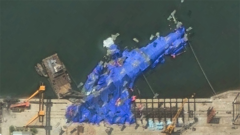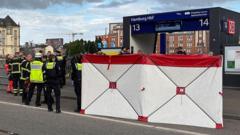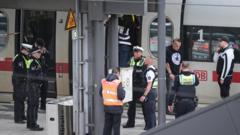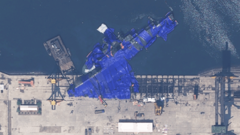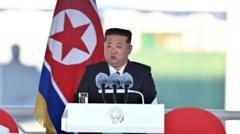In a surprising move, North Korea has detained several officials linked to a disastrous warship launch, signaling a serious internal response to military failures as the regime continues to stress the development of its navy.
North Korea Detains Officials Over Botched Warship Launch
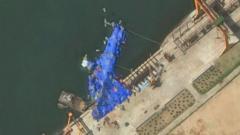
North Korea Detains Officials Over Botched Warship Launch
A senior official has been arrested following the failed launch of a new destroyer that has drawn the ire of Kim Jong Un, who labeled the incident as a grave mishap.
North Korea has arrested a fourth official over the failed launch of a new warship that has enraged the country's leader, Kim Jong Un. Ri Hyong-son, deputy director of the ruling Workers' Party's Munitions Industry Department, was "largely responsible for the serious accident" last week, state-run news agency KCNA said on Monday. The 5,000-ton destroyer had tipped over and damaged its hull, in what Kim described as a "criminal act" that "severely damaged the [country's] dignity and pride." The vessel is currently undergoing repairs under the guidance of an expert group, KCNA reported.
Mr. Ri, who sits on the party's Central Military Commission, is the highest-ranking official to be arrested in connection with this incident. This commission oversees the Korean People's Army and shapes North Korea's military strategies. Following the failure, three other officials associated with the Chongjin shipyard were also detained—specifically the chief engineer, construction head, and an administrative manager.
Kim previously stated that the mishap stemmed from "absolute carelessness, irresponsibility, and unscientific empiricism." The nature of the punishment facing these officials remains uncertain; however, North Korea is notorious for meting out severe penalties, including forced labor and even execution for perceived failures.
While it is uncommon for North Korea to make public any local accidents, there have been a few cases after failed satellite launches. Analysts suggest that Kim's prompt and drastic response is intended to reinforce Pyongyang's commitment to enhance its military capabilities. Observers note that the overt criticism is atypical for a dictatorship, leading some, like former South Korean special forces commander Chun In-bum, to conclude that it may indicate a newfound confidence and resilience within the regime.
Michael Madden, a North Korea expert at the Stimson Center in Washington, views Kim's reaction as indicative of the "high priority" placed on developing naval assets. He points to the possibility that the incident resulted from excessive internal pressure on production units and personnel to expedite the launch process. The shipyard accident occurred shortly after North Korea displayed a similar vessel in another region, which Kim had hailed as a critical step in modernizing the nation's navy.




